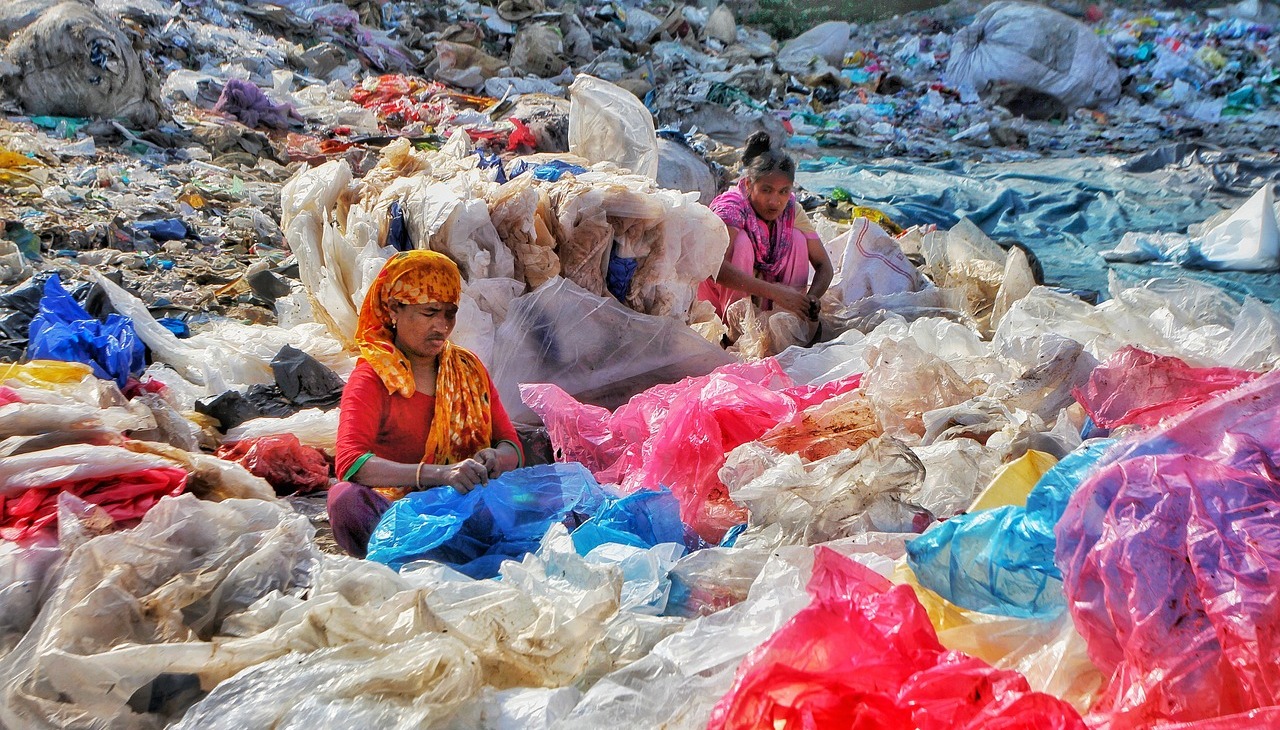
Global treaty to tackle climate threat from plastic is sought
Negotiations began in Uruguay to define the details against this type of contamination.
“The plastics industry is actually the fastest-growing source of industrial greenhouse gases in the world. The UN Environment Programme estimates that the greenhouse gas emissions from plastic production, use and disposal could account for 19 percent of the total global carbon budget by 2040,” stated the United Nations (UN) while pointing to this material as one of the main culprits of climate change.
Although world leaders promised, at an UN conference, to participate in an official agreement on plastic until 2024, so far no road map has been made official that allows for the appropriate treatment of the urgency that this threat represents for the planet.
Key points
A series of negotiations recently began in Uruguay by UN delegates, specialized agencies, and NGOs, seeking to seal the commitment to confront plastic pollution and specify details on how to address the production and disposal of this material.
According to data from the Heinrich Böll Foundation shared by DW, it is estimated that between 1950 and 2015 some 8.3 billion tons of plastic were produced in the world, where only 10% was recycled.
Likewise, the Organization for Economic Cooperation and Development (OECD) warns that without a change in policy and culture, consumption could go from 460 million tons in 2019 to 1,200 million tons in 2060.
“Plastics are not one distinct material but rather a group of materials with different compositions and characteristics. In fact, there are thousands of different plastic varieties. However, about 99 percent of the plastics we use today originate from fossil fuels like oil, gas or coal. Plastic production is therefore deeply linked with the fossil fuel supply chain, and many fossil fuel companies own, operate or invest in plastic production infrastructure,” UN points out, warning that many statistics on the subject are not reliable and the damage could be much greater.
Globally, nearly 80% of plastic waste ends up in landfills or nature & less than 10% is recycled.
— United Nations (@UN) November 27, 2022
To #BeatPlasticPollution & mitigate its long-term impacts, we must reduce the production of plastic.@UNDP has more. https://t.co/o6ahVXnFfk
Will there be a global consensus?
While scientists still do not reach an agreement on the threat posed to health by the presence of microplastic particles in the body, experts point out that one must be moved as quickly as possible from an approach such as the current one, in which each country approaches the problem in its own way, to one that takes on this battle globally.
RELATED CONTENT
From different environmental organizations they seek to establish a global standard for companies to report the amount of plastic produced, the origin of the petrochemical products used, and their composition.
The agreement also seeks that the countries with the highest income, such as the United States and the United Kingdom, which according to a Science Advances study were the ones that generated the most plastic waste per capita in 2016, financially support developing nations to treat the problem of abandoning plastic.
While in the European Union (EU) single-use plastic products are banned, in the United States there are still no federal laws on disposable plastic, which indicates a wide gap in the search for a global consensus on the issue.
“To mitigate the climate, environmental and health impacts of plastic pollution, we must turn off the tap and eliminate plastic pollution at its source, not only cutting down its use at an individual level but cutting down its overall production,” stresses UN.
How to help?
The UN highlights the following actions so that each person contributes their grain of sand in this fight for survival:
- Advocate and support the implementation of policies and laws to reduce plastic production, drive circular design, improve waste management, and hold polluters accountable.
- Support initiatives that provide critical solutions to reduce plastic pollution and advocate for governments and businesses to act.
- Become an advocate for reducing plastic pollution and help change the behavior of others.











LEAVE A COMMENT: